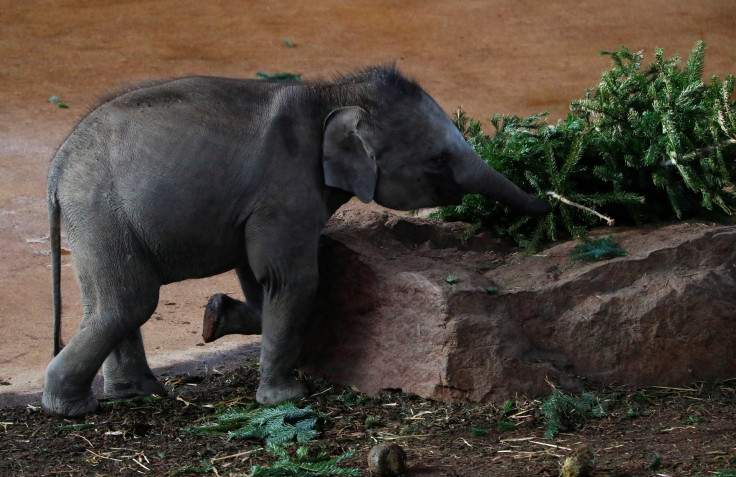Why Did Oregon Zoo Kill Packy? Famous Asian Elephant Euthanized After TB Diagnosis, People Angry Over Zoo's Decision

The 54-year-old Asian elephant named Packy who made headlines in 1962, when he became the first elephant born in the Western Hemisphere in 44 years, died Thursday at the Oregon Zoo after being euthanized. At the time of his death, he was the oldest male of his species in North America.
"We loved Packy so much," Bob Lee, who oversees the zoo elephant program and had been working with Packy for the past 17 years, said in a news release. "He was my favorite — the most impressive animal I've ever known. It's hard to think about coming in to work tomorrow and not seeing him. There will never be another like him."
Packy, who was brought to the Oregon Zoo on April 14, 1962, gained international attention because his birth helped scientists understand Asian elephants better and thus create new techniques for the care and welfare of the species.
Packy touched countless lives over the past 54 years.
— Oregon Zoo (@OregonZoo) February 9, 2017
Thank you for your outpouring of sympathy today. pic.twitter.com/9uuiwn2Wis
Packy had been suffering from a drug-resistant strain of tuberculosis (TB) and was euthanized after veterinarians failed to come up with an alternative way to treat his ailment.
"We'd run out of options for treating him," Dr. Tim Storms, the zoo's lead veterinarian, said in the statement. "The remaining treatments involved side effects that would have been very hard on Packy with no guarantee of success, plus a risk of creating further resistance. None of us felt it would be right to do that. But without treatment, his TB would have continued to get worse. We consulted other experts — veterinarians and pharmacists — and a lot of people were involved in this decision, but that didn't make it any easier. Anybody who's had a sick or elderly pet knows how painful this can be, even if you know it's the best thing for the animal."
Dr. Don Moore, the zoo's director, called it a major loss for the community. "Packy was one of the most famous animals in the world, but to the people who live here, the people who grew up with him, he was family," he said.
The Oregon Zoo's decision to euthanize Packy first became public when an elephant keeper and another employee at the zoo (who both remain anonymous) posted it on a Facebook page called Team Packy. They were trying to gather support from people so that the killing of the elephant could be stopped.
"It appears zoo management and Metro [local government] are about to make the decision to put Packy down and this decision is not based on science, safety or Packy's best interest. It is a risk-based decision made by politicians, attorneys and other officials who fear the future repercussions of keeping him alive," Team Packy wrote in a Facebook post on Dec. 30, 2016.
Some people believe the killing of the animal was unnecessary. According to Toni Frohoff, an elephant biologist working for In Defense of Animals, Packy had not shown any signs of TB, and was actually a healthy animal. "It's devastating because the information that we have access to indicated that Packy was playful and interactive and asymptomatic of TB," Frohoff said. "This is not by any means euthanasia — this is murder."
People took to social media to remember the beloved elephant.
Was very very saddened to hear of the passing of #Packy this morning at @OregonZoo. Always loved visiting him as a kid. #rip pic.twitter.com/N4x81ekQ95
— Hyperbole Weekly (@HyperboleWeekly) February 9, 2017
Farewell to Packy the Elephant... My heart goes out to the @OregonZoo and those who loved him. pic.twitter.com/PRkCMcD5JR
— Mayor Ted Wheeler (@tedwheeler) February 9, 2017
© Copyright IBTimes 2025. All rights reserved.






















